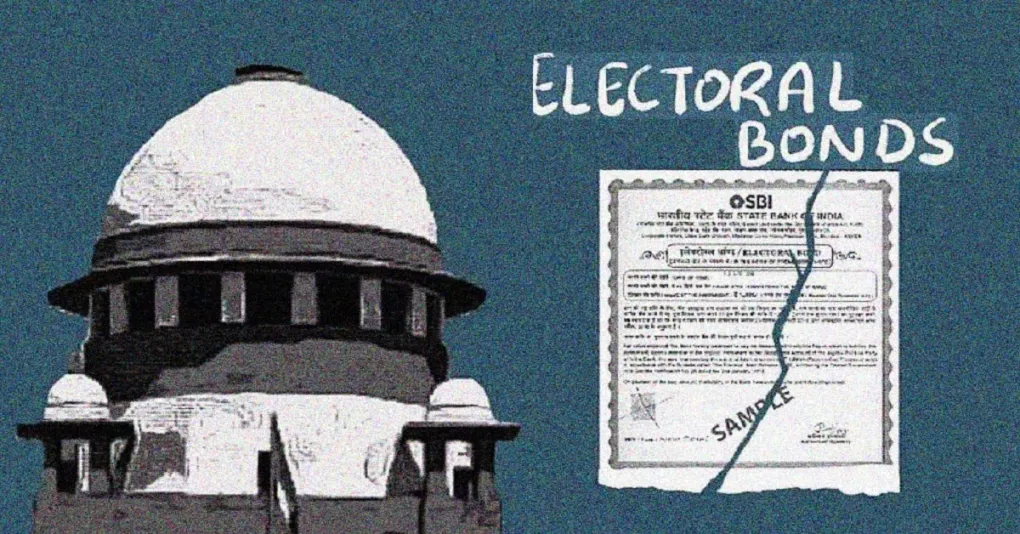Appeals of Electoral Bonds will be Decided by the Supreme Court Today

Image Source: Citizen for Justice and Peace
Bengaluru, Karnataka, Feb 15, 2024: Election bonds are financial instruments that people or corporations can buy from a bank and provide to a political party, which can then redeem them for money. Electoral bonds were first introduced in January 2018.
In response to several arguments against the constitutionality of the electoral bonds program, the Supreme Court will rule. A five-judge constitution panel headed by Indian Chief Justice DY Chandrachud is set to deliver the ruling on Thursday at 10:30 a.m.
To increase transparency in political fundraising, the program was positioned as an alternative to monetary contributions given to the nation’s political parties.
Following a three-day hearing on the batch of pleas, the Supreme Court had postponed its decision until November 2.
The Centre’s Solicitor General Tushar Mehta stated during the hearings that the Electoral Bond program guarantees equitable use of cash for political purposes through appropriate banking channels.
He underlined that donor identities must be kept secret to shield them from possible political party retaliation.
The Centre proposed that, by the current plan, the Supreme Court may name the Reserve Bank of India (RBI) as the statutory bank to issue electoral bonds rather than the State Bank of India (SBI).
To solve issues with the current electoral bonds system without reverting to a cash-only system, CJI Chandrachud suggested during the hearing looking into alternate ways for political donations.
“We’re not interested in returning to a cash-only economy. Our recommendation is to implement a customized and proportionate approach that addresses the significant shortcomings of the current electoral bond system. It is still possible to design a system that equalizes proportionately. You have to decide how it should be done. We won’t enter that space since it is outside the scope of our work,” he declared.
Speaking about the question of how money enters the system, the Chief Justice stated, “However, if a company reports a profit of one rupee but donates 100 crores, these caps were introduced because there was a company whose purpose was to carry on business and not donate to political purposes, assuming it is not an altruistic model.”
Concerns regarding the transparency of electoral bonds were brought up throughout the hearing. Attorney General Mehta clarified that the current structure guarantees clean money flows into the system and precludes the formation of shell businesses.
Electoral bonds, according to the petitioners, are opaque, anonymous tools that encourage corruption in the nation and violate the public’s right to information.
Senior Advocate Kapil Sibal argued on behalf of Congressman Jaya Thakur that there is no need for political parties to reveal the source of the funding and that the entire process is anonymous because these interest-free bonds can be purchased without a declaration.
The Finance Acts of 2017 and 2016 have amended at least five separate legislations, and the Supreme Court’s ruling will address several petitions that challenge these revisions. The petitioners contend that the aforementioned modifications have provided political parties with unrestricted, limitless funding.
Meanwhile, the highest court in India chastised the Election Commission of India (ECI) for failing to keep track of contributor information and the amount of money given to political parties. The court requested a comprehensive report on all donations made up until September 30, 2023.
Informing the bench that data had only been gathered for the year 2019, the poll body’s attorney appeared.
Team Profile

- News Writer
- Khusbu Jena, equipped with a sturdy educational background in Media Studies, embarks on a journey to traverse the expansive dimensions of media, aiming to intertwine it with international affairs. Their academic pursuits have endowed them with a deep comprehension of the dynamic media landscape, spanning from traditional journalism to digital platforms, as well as encompassing area studies and geopolitics. Demonstrating an inherent curiosity about diverse workspaces, Khusbu exudes an eagerness for continuous learning and exploration.
Latest entries
 English7 March 2024PM Visited Srinagar Today, The First Visit Since Article 370 was Scrapped
English7 March 2024PM Visited Srinagar Today, The First Visit Since Article 370 was Scrapped English7 March 2024Polish Farmers Threaten to Bring the Country to a Standstill Following Violent Battles with Police
English7 March 2024Polish Farmers Threaten to Bring the Country to a Standstill Following Violent Battles with Police English7 March 2024In the Lok Sabha elections, Naveen Patnaik’s Party will Run for 13 Seats, and the BJP for 8: Sources
English7 March 2024In the Lok Sabha elections, Naveen Patnaik’s Party will Run for 13 Seats, and the BJP for 8: Sources English6 March 2024Donald Trump is Getting Closer to Facing Joe Biden Again Following his Dominating Victories on Super Tuesday
English6 March 2024Donald Trump is Getting Closer to Facing Joe Biden Again Following his Dominating Victories on Super Tuesday









